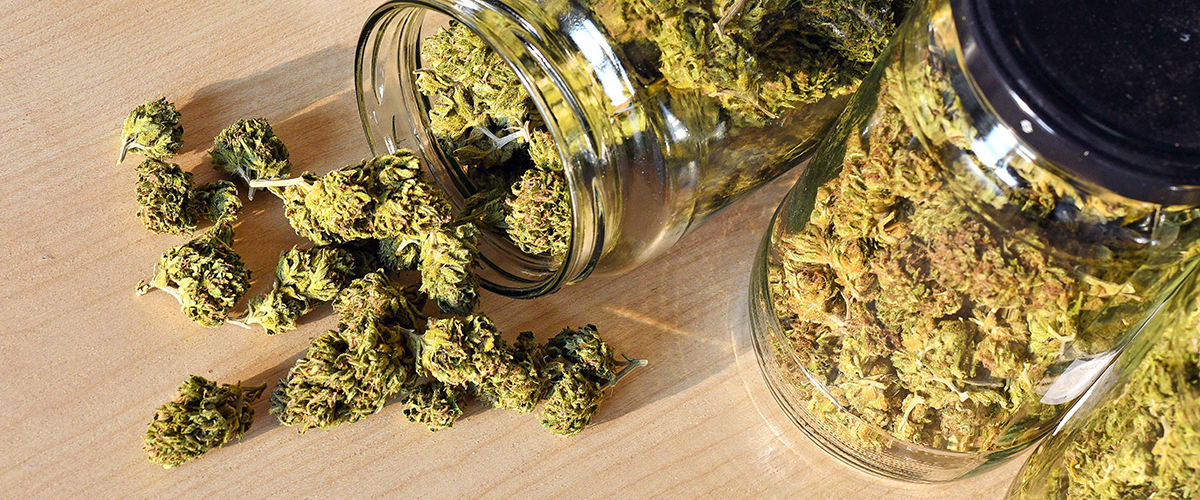The surgeon general said he is concerned “about the rapid normalization of marijuana use.” His advisory, however, contains misleading claims and statements.
United States Surgeon General Jerome Adams recently issued an advisory against adolescents and pregnant women using marijuana, now that the substance is becoming more widely available with expanding legalization.
At a press conference on August 29, Adams cited a lack of research confirming the safety of marijuana for both demographics, as well as the increased THC potency of products on the market today.
“I, Surgeon General VADM Jerome Adams, am emphasizing the importance of protecting our Nation from the health risks of marijuana use in adolescence and during pregnancy,” Adams said in a press release. “Recent increases in access to marijuana and in its potency, along with misperceptions of safety of marijuana endanger our most precious resource, our nation’s youth.”
The concern was echoed by the Secretary of Health and Human Services (HHS) Alex Azar. Azar, however, also acknowledged that he is in favor of further study of marijuana’s effects. The Justice Department announced last week that it would move forward in approving additional research-grade marijuana growers.
“We want to make sure that research can be conducted effectively, and we know there are significant barriers to the conduct of research,” Azar said. “We want to open that up for much more research, and that is a priority of this administration.”
Teen Marijuana Use
While the surgeon general’s advisory alludes to the “legalization movement [potentially] impacting youth perception of harm from marijuana,” cannabis advocates argue that legalizing and regulating marijuana makes it easier to keep cannabis products out of the hands of teens.
“A pragmatic regulatory framework that allows for the legal, licensed commercial production and retail sale of marijuana to adults but restricts its use among young people… best reduces the risks associated with the plant’s use or abuse,” NORML Executive Director Erik Alteri, executive director of the National Organization for the Reform of Marijuana Laws (NORML), told Marijuana Moment.
The surgeon general has contended that adult use legalization has led to an increase in youth access, but in reality, adolescent marijuana use has actually declined in states where recreational use has been legalized. According to a report by the Substance Abuse and Mental Health Services Administration (SAMHSA), the rate of marijuana use among teens has been declining for 15 years. In that time, 11 states have legalized recreational marijuana.
Such findings have been consistent among other studies, including one conducted recently by researchers at the University of Oregon, University of Colorado, San Diego State University, and Montana State University. The results showed that states with recreational marijuana legalization have experienced an eight percent decrease in the odds of youth using marijuana.
States that have legalized marijuana have done so only for those who are 21 and older.
Some speculate that legalization adversely impacts the illegal marijuana market, making it harder for teens to obtain products. Not to mention, marijuana may lose its appeal to teens as older adults use it.
In expressing his general fears over cannabis’ effects on young people, the surgeon general’s advisory also cited the long debunked “gateway theory,” arguing that marijuana use during adolescence increases the risk of consuming more dangerous substances in the future.
The U.S. National Institute on Drug Abuse, however, acknowledges that most teens who experience with cannabis cease use by their late twenties, and that “[t]he majority of people who use marijuana do not go on to use other ‘harder’ substances.” In fact, multiple studies suggest that cannabis use can be beneficial for addiction treatments.
Marijuana During Pregnancy
Cannabis reform advocates also believe legalization would more effectively deter use by pregnant women and other vulnerable populations. For example, in California, where recreational use is legal, product labels must feature warnings about use during pregnancy or while breastfeeding.
“If he truly has concerns, the surgeon general’s time would be better spent advocating for a structure for regulation under which we can educate Americans about the actual harms and benefits of cannabis through public education campaigns and product labelling, instead of his current fear-mongering,” added Altieri.
More research into the effects of marijuana during pregnancy is needed and the relevant science on the topic is far from definitive.
A study published in 2016 found there to be no adverse effects of smoking marijuana while pregnant once data was adjusted for tobacco use. The use of tobacco with marijuana, however, was found to increase the likelihood of premature delivery and low birth rate.
At the same time, a recent survey by SAMHSA and the National Institute on Drug Abuse found that the rate of women using marijuana while pregnant doubled between 2002 and 2017, from 3.4 percent to 7 percent.
Some expecting mothers use marijuana to ameliorate the effects of morning sickness.
However, there are still lingering concerns over the use of marijuana and a possible correlation between low birth weight and premature delivery. Federal legalization would ease restrictions for researchers looking to investigate the potential risks associated with marijuana use by pregnant women.
Scientists at the University of Washington began a study of pregnant mothers earlier this year to determine if marijuana use negatively impacts the psychological and social development of a child.
More Cannabis News
Be sure to regularly check out our news page to follow the latest reports on cannabis policy, business, and scientific research.






